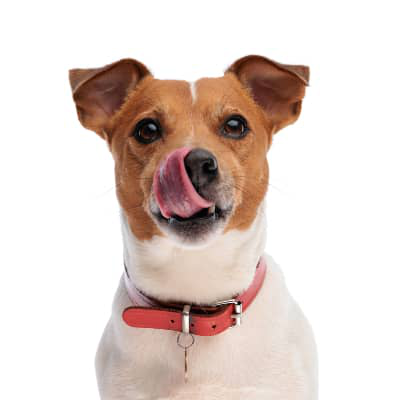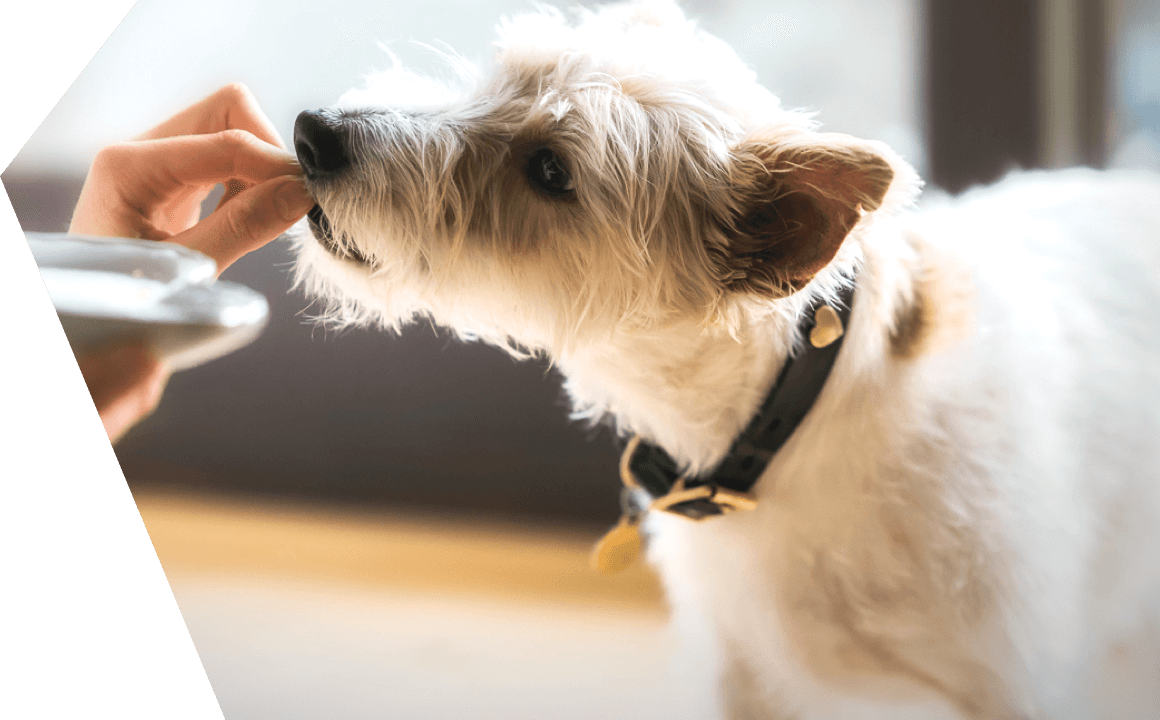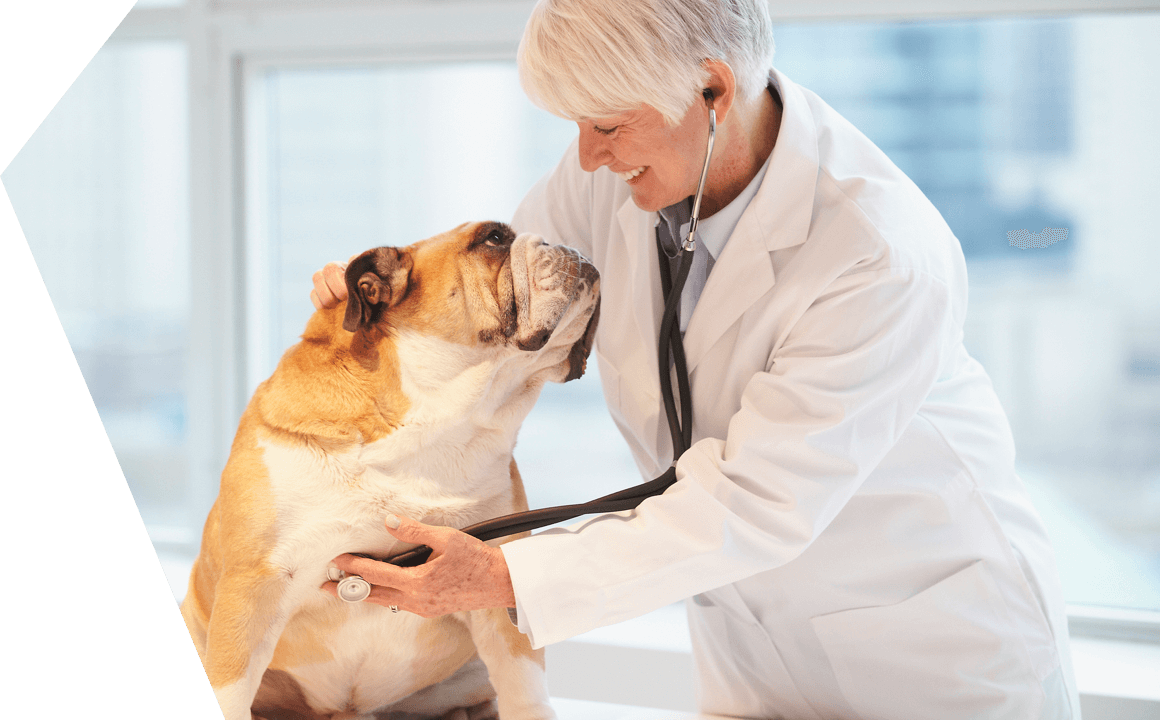Weaning a puppy
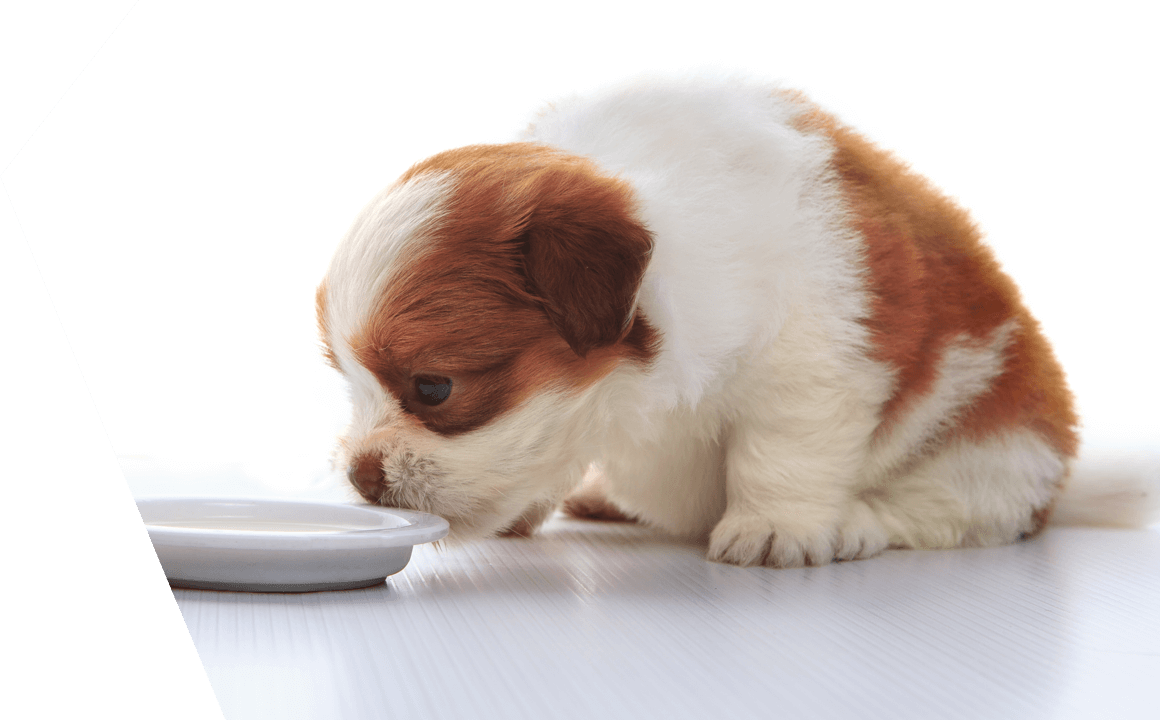
From their first month, when they start to reduce their consumption of maternal milk and to ingest food, it is important to separate the puppy from the mother for increasingly long periods of time. This process should particularly be carried out if you are going to put the puppies up for adoption, and it should be slow but constant.
Do not worry if you see that your puppy has diarrhoea. As it is a situation that can cause them stress, it is best if you do not change their food habits. Maintain their diet during the first few days, and then you can start to introduce new foods.
HYDRATION: MILK AND WATER
Did you know that in the first month, their mother’s milk provides the puppy with all the nutrients and defences that they need? From the moment that weaning begins it is vitally important that your dog always has a little water available to them so that they can stay hydrated.
It is advisable not to give them cow’s milk, because it is not appropriate for their developing small intestine.
Sugar is one of the foodstuffs that should be avoided. It can cause problems with their sight and weight (becoming overweight). Whilst they are still a puppy it is not good to give them fruit or potatoes, and even mushrooms can be toxic.
YOUR'S PUPPY'S FOOD
The food that puppies should be given ought to be appropriate for their age and not what is given to adult dogs, because its formulation is designed for different needs to those of smaller dogs The Advance Puppy with Baby Protect range contains all the nutrients that your puppy needs and it will help you to strengthen their natural defences and barriers.
In terms of the number of portions, puppies up to four months will eat four times per day; up to eight months, they reduce this to three; and up to 12 months they can reduce this to 1 or 2 daily servings. In small and toy breeds it is better that they feed twice a day, even if already adults, due to the reduced size of their stomach.
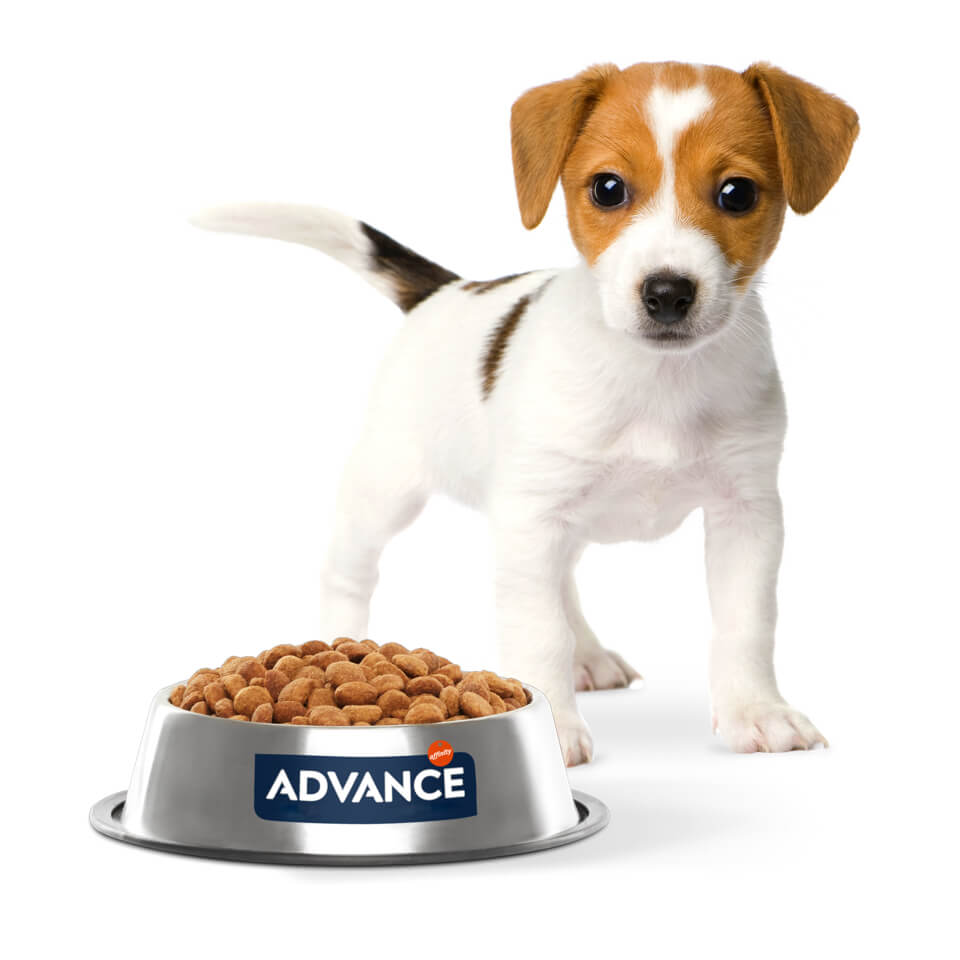
GAINING WEIGHT
During weaning you have to monitor their weight to check that the puppy is evolving appropriately. Smaller sized dogs usually reach adulthood before larger ones, so large sized dogs (more than 30kg at an adult age) need a specific product that meets their developmental needs up to 18 months.
